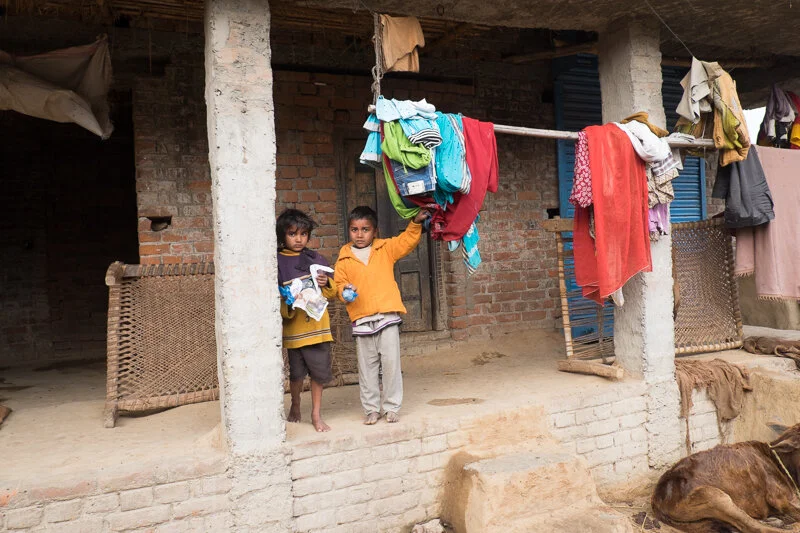The teams at IIC are working on a range of critical development areas to create scalable solutions.
Learn more about the IIC's previous projects.
Data and AI, Ministry of Electronics and Information Technology (MeitY)
Embedded at the Ministry of Electronics and IT (MeitY) in India, IIC aims to catalyse the ‘AI for Good’ ecosystem in India. Through targeted policy and programmatic interventions, IIC aims to democratize resources essential for AI innovation and ensure equitable benefits of this technology for all citizens. Towards this, IIC also supports enhancing the quality, accessibility, and responsible use of datasets for catalyzing the Tech for Good ecosystem in India.
Global Partnership on AI, MeitY
The IIC team is working with the Ministry of Electronics and IT (MeitY) as knowledge partners for the Global Partnership on AI (GPAI). The team is currently supporting India to execute its responsibilities and vision as the Council Chair of GPAI. IIC works closely with key GPAI stakeholders, domestic and global AI experts, multilateral organizations, etc. to advance India’s vision for responsible AI development that prioritizes the needs and perspectives of the Global South and aims to foster an equitable AI ecosystem globally.
Unified Health Interface, NHA
The IIC team works with the National Health Authority (NHA), on the build and adoption of the Unified Health Interface, a foundational layer of the Ayushman Bharat Digital Mission (ABDM) Stack. UHI serves as a network of open protocols, and is designed to foster interoperability in health services, with a primary focus on enhancing discoverability and delivery of health services. The IIC team collaborates closely with senior officials at NHA, playing a crucial role in the strategic planning and rollout of the Unified Health Interface, which includes four core functions – project managing the development of UHI, building the functional design for UHI and its applications, organizing activities for market adoption and lending support in framing the market guidelines and policy that will govern services on UHI.
Ayushman Bharat Digital Mission (Adoption), NHA
IIC team is supporting National Health Authority (NHA) to accelerate the adoption of the Ayushman Bharat Digital Mission. The team works with various government agencies, both at Central and State level, government programmes, and market players to identify pathways to enable adoption and scale up of interventions. The team supports as a knowledge partner to the NHA leadership, and helps identify gaps and opportunities to advocate for digital health in India.
Uttar Pradesh Digital Health Strategy -UPTSU
IIC has partnered with the Uttar Pradesh Technical Support Unit (UPTSU) to provide strategic support to build and integrate digital health infrastructure of Uttar Pradesh, in line with the ABDM efforts. With the aim to equip and transform the functioning of the health system in Uttar Pradesh, IIC is working with the UPTSU to build institutional and organizational digital capacity of the state to adopt and use digital health platforms.
Karnataka Public Health Governance - CEGIS
The IIC team in collaboration with Centre for Effective Governance in Indian States (CEGIS) is supporting the National Health Mission, Karnataka, to enhance data-driven decision-making, optimise budget allocation, and improve the effectiveness of the healthcare workforce. The broad scope of work includes enhancing the data quality of administrative datasets, reviewing budget allocation methodologies, assessing the development of a public health cadre, optimizing ground staff, and exploring the digitization potential of their work.
Karnataka Digital Health - Government of Karnataka
The IIC team in Karnataka is helping the Department of Health and Family Welfare (DoHFW), GoK, in designing and implementing several Digital Health initiatives. With the use of Digital Infrastructure, we aim to improve healthcare service delivery, streamline processes and reduce out-of-pocket expenditure by making public offerings the first choice for primary care, low-cost diagnostics and trauma care. IIC is working on enabling the administration to make better decisions in real-time, effective long-term plans and bring about lasting digital governance through technology and policy interventions.
Chandigarh ABDM Microsite, UT Chandigarh
In collaboration with the National Health Mission (NHM) in Chandigarh, IIC is spearheading an initiative to develop a microsite aimed at showcasing private sector saturation across the Union Territory. The primary objective is to expedite the integration of small to medium-sized private healthcare facilities onto the digital health (Ayushman Bharat Digital Mission) ecosystem.
Recognizing that the full potential of digital health transformation can only be realized through inclusive integration of all healthcare service providers, both public and private, these microsites serve as platforms for demonstrating the benefits of digitization in healthcare while facilitating cross-learning among stakeholders.
Academic Bank of Credits (ABC) and APAAR, Delhi
The Academic Bank of Credits (ABC) and Automated Permanent Academic Account Registry (APAAR), key initiatives under India’s National Education Policy (NEP) 2020, are reshaping how academic achievements are recorded, transferred, and accessed. They enable flexible, learner-centric pathways by integrating formal, vocational, and skill-based education. In partnership with the Ministry of Education,
IIC is driving the national adoption of ABC and APAAR—addressing technical, policy and institutional barriers, to build compelling use cases that link academic records with employment, global admissions, and non-traditional learning platforms. Leveraging expertise in system design, policy implementation, and Digital Public Infrastructure (DPI), IIC is working towards a trusted, scalable ecosystem that supports verified lifelong learning for all.
Jal Jeevan Mission, Assam
The Jal Jeevan Mission (JJM) aims to provide safe, reliable tap water to every rural household in India. In Assam, this Mission is being used to strengthen community-driven water governance. Partnering with the Government of Assam and a collective of Civil Society Organizations, IIC is supporting the Government of Assam to design research and evidence-based policies, build pilot- to-scale interventions, strengthen State capacities to implementation and foster collective action towards sustainable water infrastructure.
Through innovative use cases, the project demonstrates how community participation improves service quality, accountability, and sustainability. By facilitating collaboration between NGOs, government agencies, and communities, IIC is helping to create a dynamic, replicable model of civil society engagement that strengthens water security and delivers real gains in health, dignity, and resilience.
Jal Jeevan Mission, Odisha
The Jal Jeevan Mission – In-Line Chlorination (ILC) project aims to ensure safe drinking water across rural Odisha by reducing microbiological contamination in piped water systems, particularly Single Village Schemes (SVS). Led by the Government of Odisha with support from Development Innovation Lab (DIL) and IIC, the project introduces low-cost, tablet-based in-line chlorination, an automated, passive water disinfection technology.
IIC team is anchoring program design, governance coordination, and early implementation, beginning with a Phase 1 pilot in 200 SVS. The initiative empowers local communities to maintain water quality, fosters public health gains, and strengthens capacity for long-term system management. Insights from Odisha’s model will inform state-wide scale-up and contribute to the national Jal Jeevan Mission.













